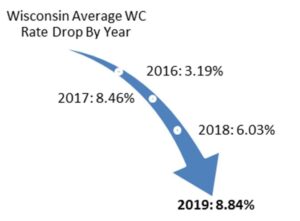What are the 2 basic types of health insurance?
What are the 2 basic types of health insurance?
There are two main types of health insurance: private and public, or government. There are also a few other, more specific types. The following sections will look at each of these in more detail.
What are the 3 types of US health insurance?
What are the different types of health insurance? Health maintenance organizations (HMOs) Exclusive provider organizations (EPOs) Point-of-service (POS) plans. Preferred provider organizations (PPOs)
Do S-corp shareholder health insurance premiums go on W-2?
Health and accident insurance premiums paid on behalf of a greater than 2-percent S corporation shareholder-employee are deductible by the S corporation and reportable as wages on the shareholder-employee’s Form W-2, subject to income tax withholding. Apr 29, 2021
Is health insurance a business expense?
Generally speaking, any expenses an employer incurs related to health insurance (for employees or for dependents) are 100% tax-deductible as ordinary business expenses, on both state and federal income taxes.
Where do S-corp owner deduct health insurance?
The business must pay the S-corp owner’s premiums directly. If the S-corp owner does qualify, they can deduct their premiums on Form 1040, line 29. S-corp owners can use this method to deduct premiums for accident, dental, and long-term care policies as well as for health insurance policies. May 18, 2021
Why would a business pay premiums to an insurance company?
By paying your premium for insurance policies, such as general liability or commercial property, you will have a financial backstop in place to protect your business against the potentially devastating impact of a major incident.
What is a preferred provider organization plan?
A type of health plan that contracts with medical providers, such as hospitals and doctors, to create a network of participating providers. You pay less if you use providers that belong to the plan’s network.
What does business interruption insurance typically cover?
Business interruption insurance is insurance coverage that replaces income lost in the event that business is halted due to direct physical loss or damage, such as might be caused by a fire or a natural disaster.
How is business interruption insurance calculated?
The business interruption formula can be summarized as follows. BI = T x Q x V. … BI = business interruption. … T = the number of time units (hours, days) operations are shut down. Q = the quantity of goods normally produced, or sold, per unit of time used in T. More items…
What is not covered by business interruption insurance?
Business interruption insurance doesn’t cover: Broken items resulting from a covered event or loss. Flood or earthquake damage, which you’ll need a separate policy for. Undocumented income that’s not listed on your business’ financial records.
Is business interruption insurance expensive?
Average business interruption insurance costs If you operate a small, low-risk business, coverage will cost much less. Business interruption insurance typically costs between $40 and $130 per month ($500 and $1,500 per year) but coverage can cost significantly more for high-value businesses with high liabilities.
Does business interruption insurance cover wages?
Business interruption insurance covers you for loss of income during periods when you cannot carry out business as usual due to an unexpected event. Business interruption insurance aims to put your business back in the same trading position it was in before the event occurred.
Is business interruption insurance taxable?
Tax implications HMRC’s general stance is that if the premium was tax deductible, any insurance receipts are taxable. Businesses would have been able to deduct the cost of business interruption insurance premiums as long as the cost was incurred wholly and exclusively for the purposes of the business.
What are probably the most common cause of a business interruption?
While there are many different causes of business interruption, the two most common are fire and flood.
How do you calculate loss of income for business interruption?
One way to calculate loss revenue from a business interruption is to determine the difference in sales and then subtracting the expenses saved as a result of not having the sales. In other words, determine projected sales, subtract actual sales, and then subtract expenses saved as a result of not having those sales.


